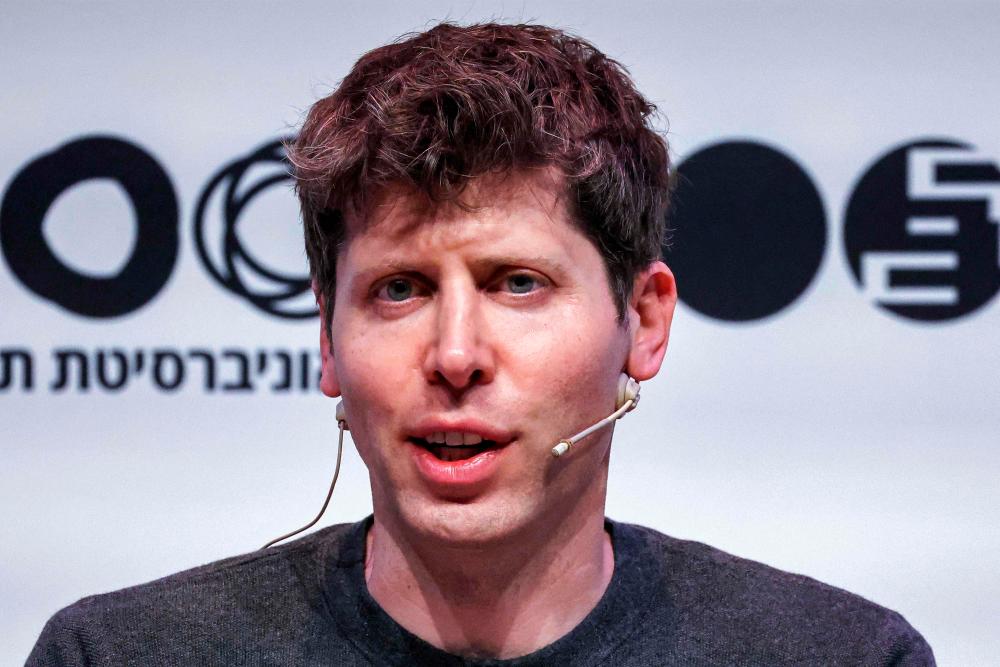SAN FRANCISCO: Sam Altman’s shock return as chief executive of OpenAI late Tuesday (Nov 21) – days after being sacked – caps a chaotic period that highlighted deep tensions at the heart of the artificial Intelligence (AI) community.
The board that fired Altman from his role as CEO of the ChatGPT creator has been almost entirely replaced following a rebellion by employees, cementing his position at the helm of the firm.
The sole survivor in the boardroom in the new Altman era is Adam D'Angelo, the CEO of question-and-answer site Quora.
He will be joined by ex-Salesforce co-CEO Bret Taylor and by former US Treasury secretary and president of Harvard University, Larry Summers.
In Summers, Altman will find a seasoned economist and well-known figure in Washington, who has spoken of both the dangers and opportunities of ChatGPT for the “cognitive classes”.
“ChatGPT is gonna replace what doctors do, hearing symptoms and making diagnoses, before it changes what nurses do,” Summers told Bloomberg News earlier this year.
Neither Altman nor OpenAI co-founder Greg Brockman – who quit as company president following Altman’s sacking – will return to the board, which could soon have as many as six additional members, the Wall Street Journal reported.
“I love openai, and everything i’ve done over the past few days has been in service of keeping this team and its mission together,” Altman wrote in a social media post late Tuesday on X, formerly Twitter.
The five-day saga began on Friday, when Altman was abruptly sacked by the board for reasons that are still unclear.
The board said in a statement that it had sacked Altman because “he was not consistently candid in his communications with the board”, without elaborating further.
It strongly resisted attempts to bring him back, cycling through two new chief executives over the weekend, before three of its four remaining members were sacked on Tuesday to pave the way for Altman’s dramatic return.
Some media outlets reported that there had been concerns that OpenAI was moving quickly away from its stated mission of “building safe and beneficial artificial general intelligence for the benefit of humanity”, for commercial gain.
However, OpenAI’s interim CEO Emmett Shear, said in a social media post that he had been assured “the board did ‘not’ remove Sam over any specific disagreement on safety”, without elaborating on why Altman had been sacked.
Altman’s return reaffirms his position as a leader in the rapidly-evolving field of generative-AI.
But the agreement also highlights the growing power that Microsoft now wields over the future of OpenAI.
During his five days in the wilderness, Altman briefly took up a position at the tech giant, which has poured billions of dollars into OpenAI and helped launch ChatGPT, whose success sparked a multi-billion-dollar global race in AI research and development.
In an X post confirming his return, Altman cited “satya’s support”, in his decision to return to OpenAI, a reference to Microsoft CEO Satya Nadella.
“I’m looking forward to returning to openai, and building on our strong partnership with msft,“ Altman added, an apparent reference to Microsoft.
While OpenAI’s ChatGPT is the most widely known large language model – or LLM – many of the other big tech firms, including Google and Facebook parent Meta, have invested heavily in the powerful AI technology – raising concerns about its governance.
Earlier this month, Western governments and tech companies agreed to a new safety testing regime to allay concerns at the pace at which AI is growing, and at the lack of global safeguards in place to control it.
UN Secretary-General Antonio Guterres told the conference in London that the world was “playing catch-up” in efforts to regulate AI, which had “possible long-term negative consequences” on everything from jobs to culture.
In a separate development, two people familiar with the matter told Reuters that ahead of Altman’s four days in exile, several staff researchers sent the board of directors a letter warning of a powerful AI discovery that they said could threaten humanity.
The previously unreported letter and AI algorithm was a catalyst that caused the board to oust Altman, the poster child of generative AI, the two sources said.
The sources cited the letter as one factor among a longer list of grievances by the board that led to Altman's firing. Reuters was unable to review a copy of the letter. The researchers who wrote the letter did not immediately respond to requests for comment.
OpenAI declined to comment.
According to one of the sources, long-time executive Mira Murati told employees on Wednesday that a letter about the AI breakthrough called Q* (pronounced Q-Star), precipitated the board’s actions.
The maker of ChatGPT had made progress on Q*, which some internally believe could be a breakthrough in the startup's search for superintelligence, also known as artificial general intelligence (AGI), one of the people told Reuters. OpenAI defines AGI as AI systems that are smarter than humans.
Given vast computing resources, the new model was able to solve certain mathematical problems, the person said on condition of anonymity because they were not authorised to speak on behalf of the company. Though only performing math on the level of grade-school students, acing such tests made researchers very optimistic about Q*'s future success, the source said. Reuters could not independently verify the capabilities of Q* claimed by the researchers. – AFP, Reuters









